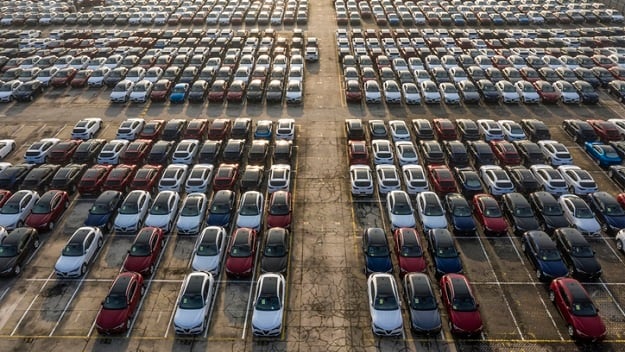
- The new vehicle market has improved compared to 2020's second-quarter performance when the hard lockdown was in place, but a full recovery will take until 2023.
- The motor vehicle manufacturing industry is facing supply chain challenges - of both imported and local components - due to disruptions linked to the pandemic.
- "Fragile" consumer confidence has resulted in sales of passenger cars and bakkies taking a dip.
The automotive industry is facing supply chain challenges due to disruptions caused by the Covid-19 pandemic, as well as "fragile" consumer confidence affecting passenger car and bakkie sales.
Automotive business council Naamsa on Monday issued the second-quarter review of business conditions for the motor vehicle manufacturing industry.
It showed that the new vehicle market has recorded a recovery in its performance levels in the first half of 2021, up 40.1% from the same period in 2020 when the Covid-19 pandemic hit, along with its associated hard lockdown restrictions which were in place for five weeks. However, performance is still 11.7% below that recorded in the first half of 2019 - before the pandemic. This shows a full recovery will be "protracted" until 2023, Naamsa said.
Among the challenges affecting the industry during the quarter include electricity supply disruptions, port delays, global supply chain disruptions, increasing logistical costs and the slow rollout of vaccines, said naamsa.
In the latter part of the quarter, adjusted level 4 lockdown restrictions were implemented - which threatened to dent business and consumer confidence as well as consumption levels. Unrest in Gauteng and KwaZulu-Natal, which affected ports, took place in late July, but the impact on the vehicle industry is not accounted for in the second-quarter review.
The Covid-19 pandemic has been the "biggest deterrent" to growth for the industry, both domestically and globally, Naamsa noted. In 2020, global vehicle production slumped 15.8%. Manufacturers have produced fewer vehicles in 2020 than in 2019, the latter of which was already a tough year with global production having declined 5.2%
South Africa's share of global production declined from 0.69% in 2019 to 0.58% in 2020. Vehicle production declined about 29% between 2019 and 2020. But the second quarter data for 2021 shows that vehicle production more than doubled (173%) compared to the second quarter of 2020.
This rebound is linked to a recovery in global economic activity in 2021. A boost in export volumes, due to increased demand in Europe, is filtering through to the domestic automotive industry, according to Naamsa. "However, although being 66% ahead of the corresponding period [in] 2020, vehicle exports for the first half 2021 remain 0.9% below the level of the first half 2019," the report read.
New car sales increased 153% compared to the second quarter of 2020. However, there has been "weaker performance" in new passenger cars and bakkies during the second quarter of 2021, compared to the first quarter of the year. This is a signal of "ongoing fragile" consumer confidence.
There has, however, been an increase in medium and heavy commercial vehicle sales related to the increase in economic activity and the rebound in the economy.
Stock shortages
The association flagged as a concern stock shortages - particularly that of semi-conductors, affecting the industry globally. A shortage of semiconductors - mainly used in modern vehicles for electronics such as safety features, driving aids and entertainment systems could negatively impact worldwide production by 74.8 million, The Economist reported.
Covid-19 disruptions, mainly vessel and container shortages, have pushed up ocean freight rates and are negatively affecting the supply of imported components, Naamsa said. Local steel shortages are also resulting in price increases.
However, despite the challenges, CEOs of vehicle manufacturing firms expect that general automotive business conditions will improve over the next six months, Naamsa said.




 Publications
Publications
 Partners
Partners













